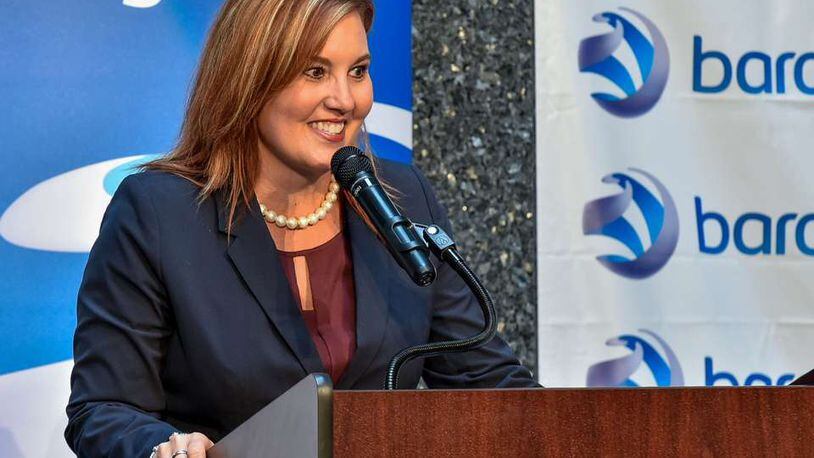RELATED: Rep. Warren Davidson wants ‘big, bold, permanent reform’
Taylor was the first among the eight major gubernatorial candidates to announce a tax plan. The tax plan is the first of her plans she’ll announce, and she said she would soon announce her alternative for Ohio to the Affordable Care Act, commonly known as Obamacare. Taylor wouldn’t give specifics, but said, “Mine’s going to be a consumer-driven, market-focused solution.”
“We cannot sustain Medicaid expansion. We are going to provide market solutions to populations of people, giving them options to get coverage,” she said.
With her tax plan, the lieutenant governor has taken a “go big or go home” approach to some of her ideas. One of her big ideas is actually small: she wants to reduce the 11-page individual tax return filing down to something a little bigger than a post card — similar to the state tax form used a few decades ago.
“That’s really where we want to go,” she said. “If you’re not willing to challenge the status quo, it never gets done.”
Taylor, who also wants to see Ohio go to a flat tax, believes it’s realistic to think the state can return to that shorter style of form. “There are things that are duplicate in topic, as far as the number of tax credits. We have to evaluate, ‘Does it make sense to continue that credit’ and can we do it with one credit, not four.”
For example, if a taxpayer makes a donation to a statewide or legislative political campaign, they can write that off up to $50 on their taxes.
“I think we just get rid of that, honestly,” Taylor said. “I don’t know why we need it.”
RELATED: Portman meets with local business leaders about federal tax reform
That would be an unpopular elimination of the state’s tax code, especially among those in politics, but Taylor said, “We’re going to have to take a serious look at special-interest carve outs, evaluate them and make decisions about the ones that are working and the ones that need to be continued.”
Another aspect of Taylor’s tax plan is to help small business owners focus more on business than tax compliance issues. The vast majority of small business owners pay their business income tax on their individual tax return because they’re a “flow through entity.”
“Small business is what drives our economy, and to the extent we have them focused on their business and job creation and less on tax compliance and tax issues, I think the better off we’re going to be,” Taylor said. “Our goal is to simplify and make compliance as easy as possible.”
About the Author
